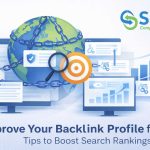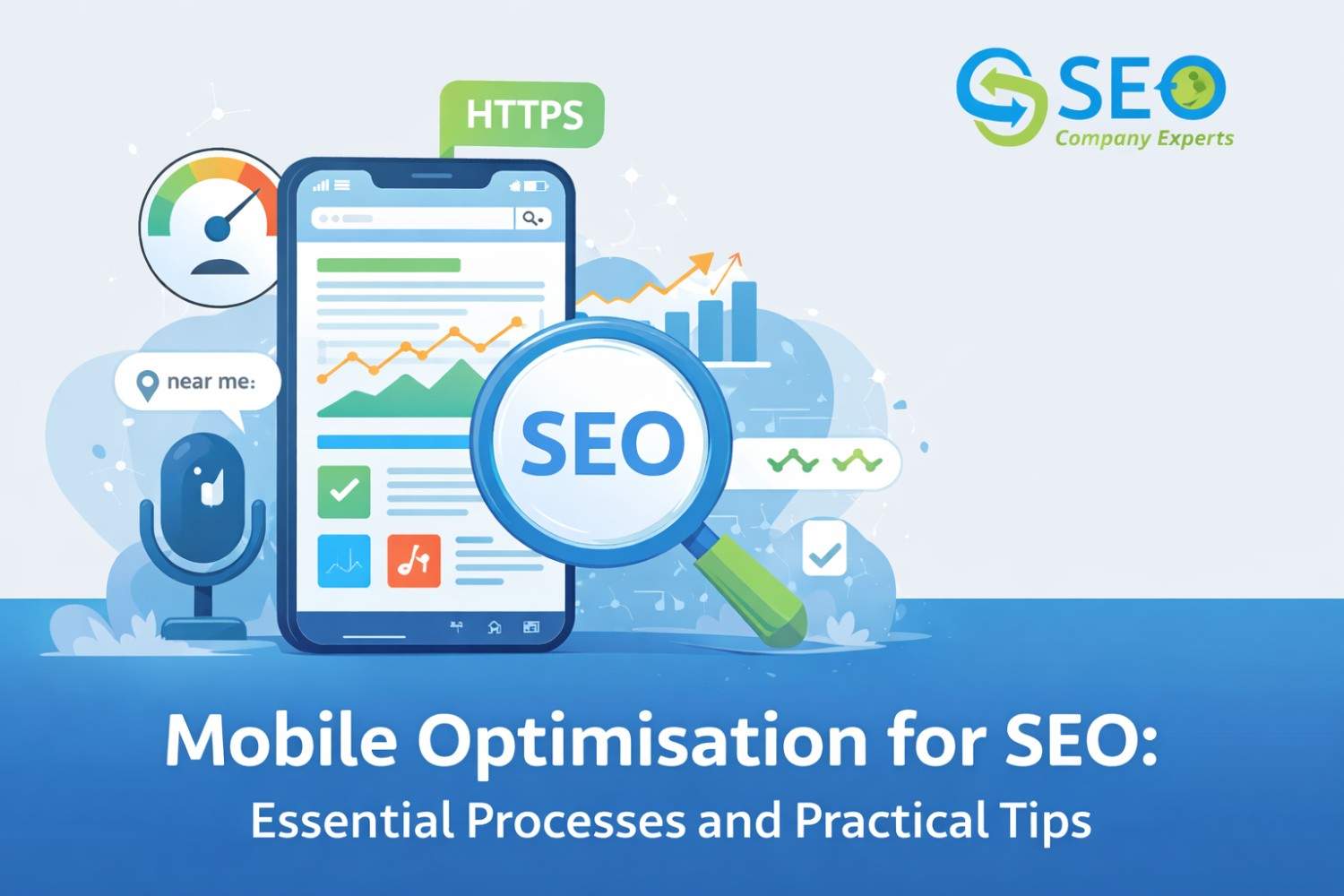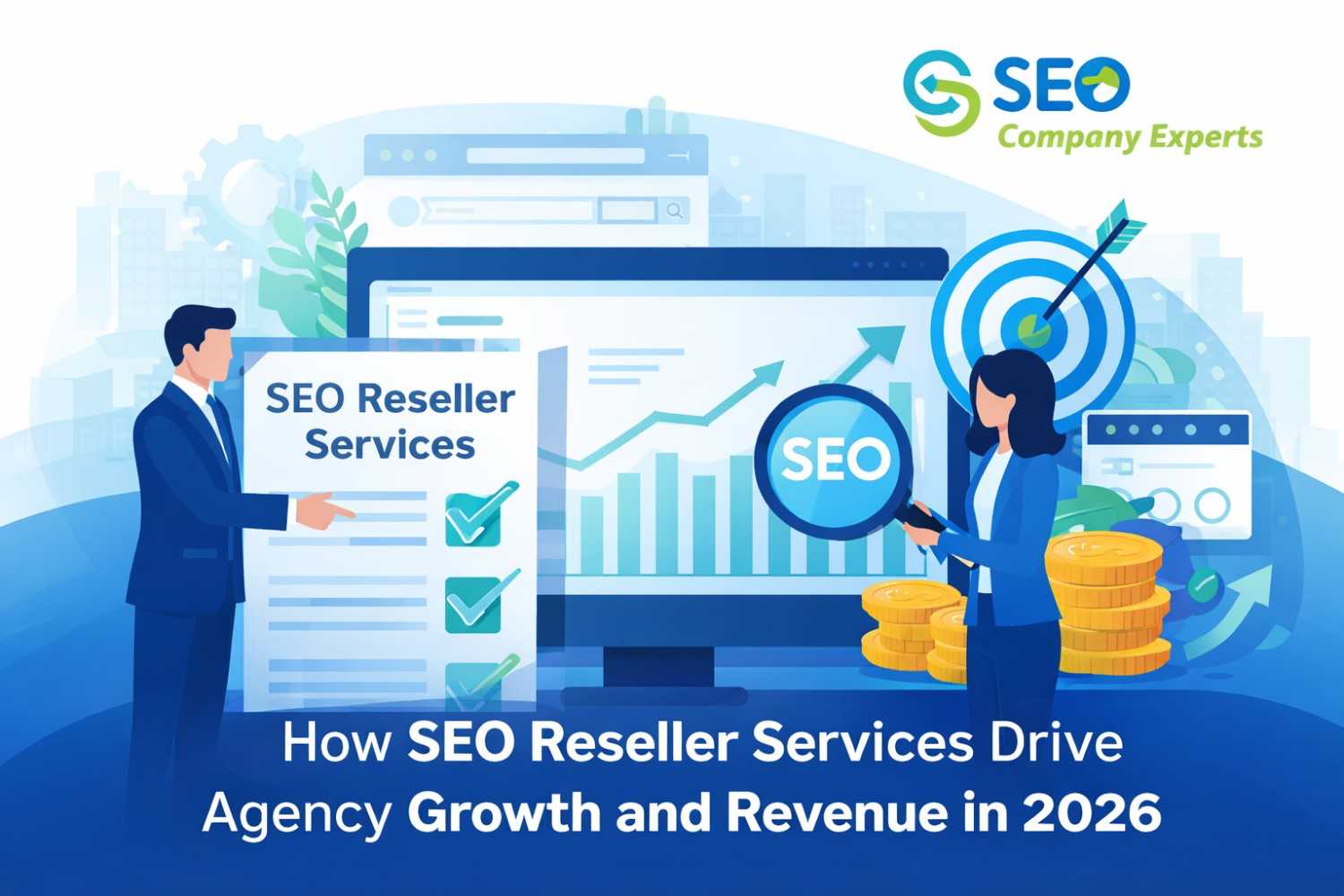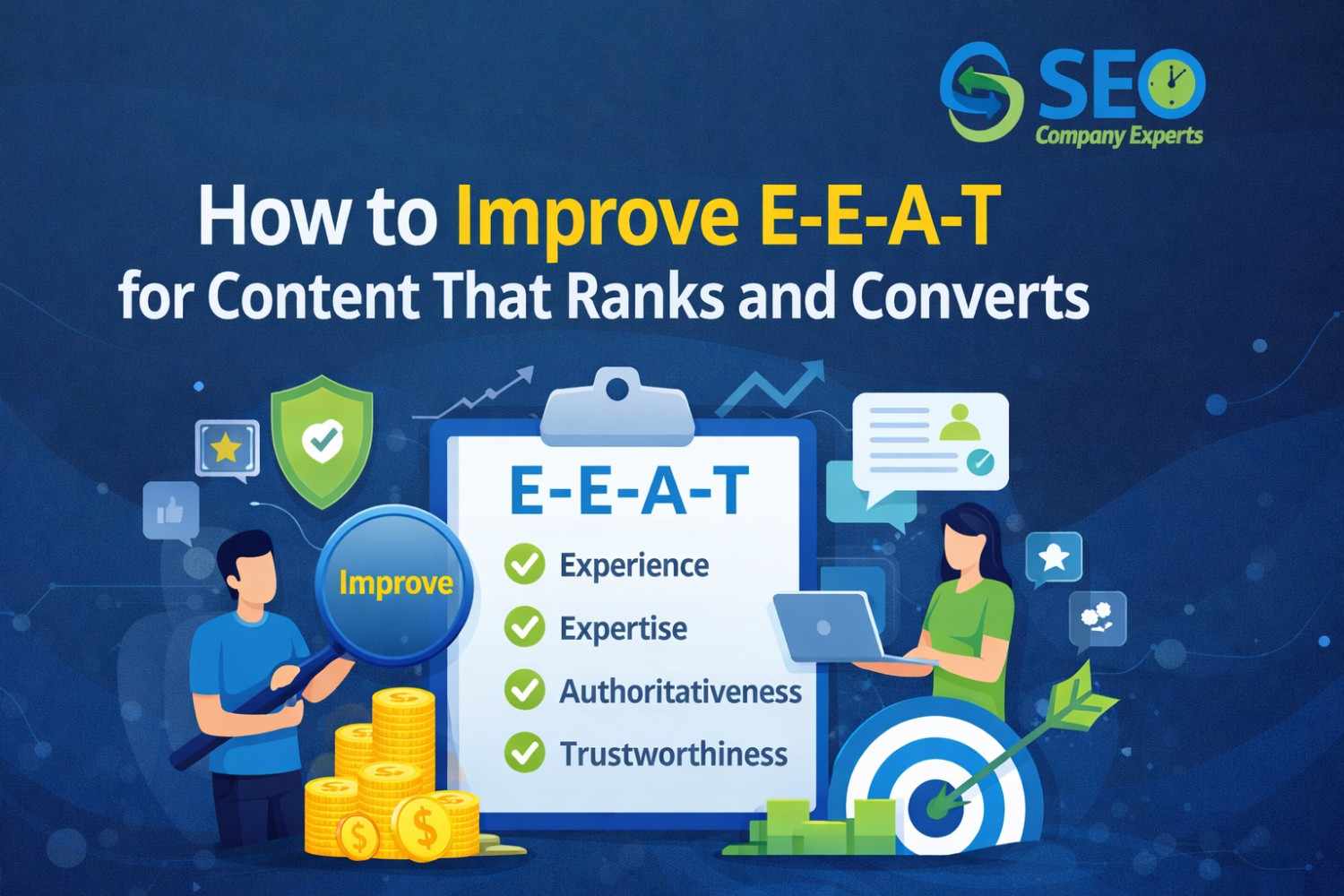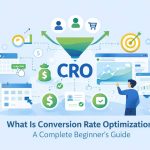
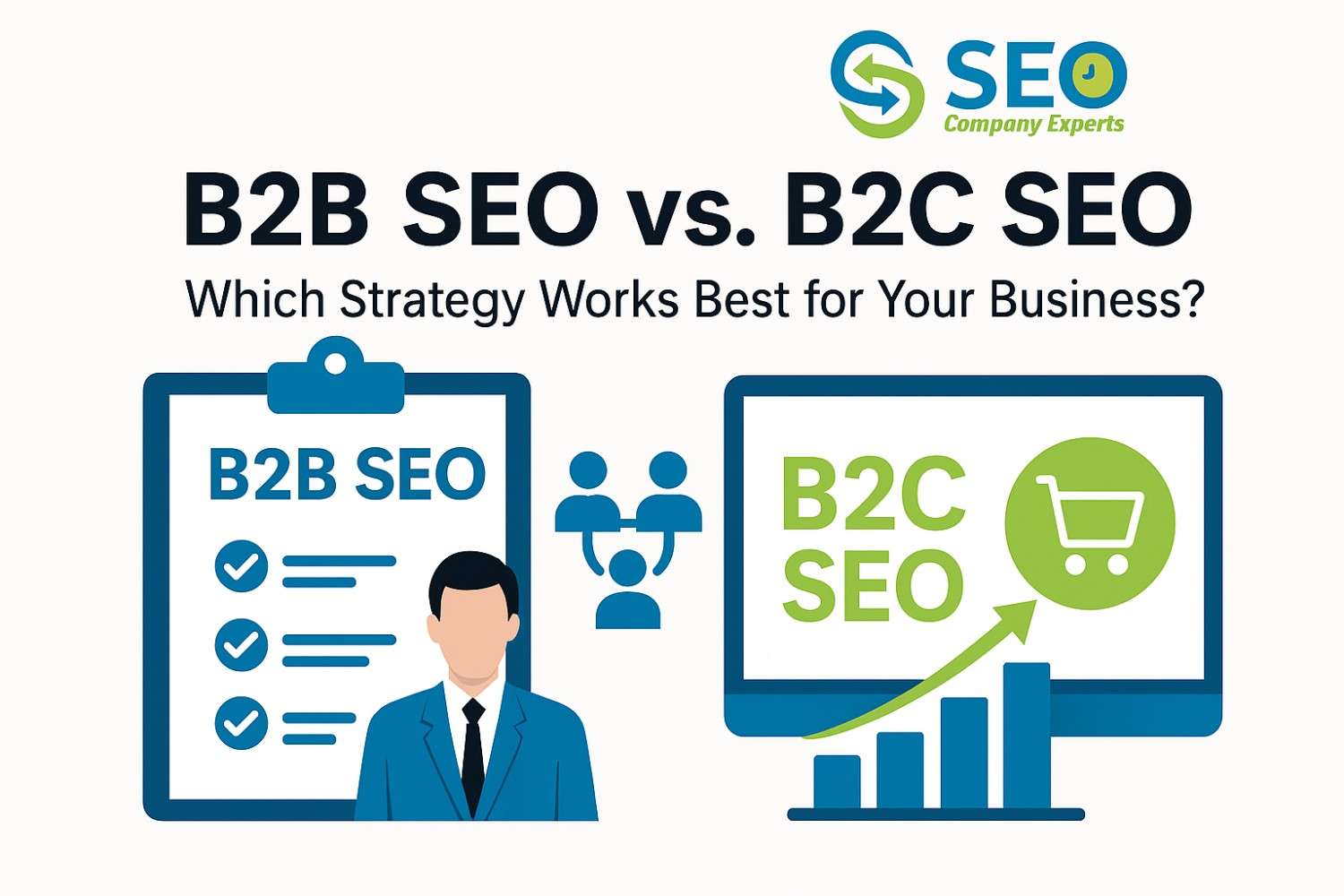
Did you know that 93% of B2B buyers start their purchase journey with an online search, while 81% of B2C consumers research products online before making a purchase decision? These statistics reveal a critical truth about modern business: both B2B and B2C companies rely heavily on search engine visibility, yet their approaches couldn’t be more different. The way a software company targets procurement managers differs drastically from how an e-commerce retailer attracts weekend shoppers browsing for the perfect pair of shoes.
The problem facing most business owners today is choosing the wrong SEO strategy for their business model, leading to wasted resources, poor ROI, and missed opportunities. Many companies apply B2C tactics to B2B audiences or vice versa, resulting in content that fails to resonate with their target market. Understanding the fundamental differences between B2B SEO vs B2C SEO isn’t just about keywords and content—it’s about aligning your entire digital strategy with how your customers actually search, think, and buy.
Understanding B2B vs B2C Marketing Fundamentals
The foundation of effective SEO strategy lies in understanding your business model and target audience behavior. B2B and B2C companies operate in fundamentally different ways, requiring distinct approaches to search engine optimization. Let’s explore how these two models differ in their marketing approach and SEO requirements.
What is B2B Marketing SEO?
B2B Marketing SEO focuses on reaching business decision-makers who are searching for solutions to professional challenges. These searches typically involve longer, more specific queries like “enterprise CRM software for manufacturing companies” or “industrial equipment maintenance services.” The B2B SEO strategy centers around educating prospects through detailed, authoritative content that addresses complex business problems.
B2B buyers often research for weeks or months before making a decision. They’re looking for case studies, whitepapers, and detailed comparisons that help justify their investment to stakeholders. This means B2B content needs to be comprehensive, data-driven, and focused on ROI and business outcomes.
What is B2C Marketing SEO?
B2C Marketing SEO targets individual consumers making personal purchases. These searches tend to be broader and more immediate, like “best running shoes for flat feet” or “affordable skincare routine for sensitive skin.” The B2C SEO strategy emphasizes emotional appeal, visual content, and quick decision-making support.
B2C customers often make impulse purchases or decisions within days rather than months. They want product reviews, price comparisons, and content that helps them feel confident about their choice. This requires a more dynamic, trend-responsive approach to content creation and keyword targeting.
Key Differences Between B2B and B2C SEO
Understanding the core differences between B2B SEO vs B2C SEO is essential for developing an effective digital marketing strategy. These differences span across target audience behavior, content requirements, and conversion pathways. Each approach requires a tailored methodology to achieve optimal search engine rankings and business results.
Target Audience and Search Intent
The differences between B2B and B2C SEO start with understanding who’s behind the search. B2B searchers are typically professionals researching during work hours, using industry terminology and seeking detailed technical information. They often search for specific solutions to business problems, regulatory compliance information, or vendor comparisons.
B2C searchers, on the other hand, might be browsing on their phones during lunch breaks or researching weekend purchases from their couch. They use everyday language, focus on personal benefits, and are often influenced by social proof like reviews and ratings.
Content Strategy Variations
B2B Content Priorities:
- In-depth educational resources and thought leadership pieces
- Technical documentation and implementation guides
- Case studies demonstrating ROI and business impact
- Industry-specific insights and trend analysis
- Gated content for lead generation (whitepapers, webinars)
B2C Content Focus Areas:
- Product reviews and comparison guides
- Lifestyle and entertainment content
- Visual content (videos, infographics, photos)
- User-generated content and social proof
- Seasonal and trending topics
B2B content typically requires more research time and expert input, while B2C content needs to be produced quickly to capture trending topics and seasonal opportunities.
B2B SEO Strategy: Complete Implementation Guide
Implementing a successful B2B SEO strategy requires a deep understanding of complex sales cycles and professional decision-making processes. B2B marketing SEO focuses on building authority, demonstrating expertise, and nurturing long-term relationships through valuable content. This approach emphasizes education and trust-building over immediate conversions.
B2B Keyword Strategy and Implementation
A successful B2B SEO strategy starts with understanding that business buyers use specific, professional terminology. Instead of targeting “software,” you’d focus on “enterprise resource planning software for mid-sized manufacturing companies.” These longer, more specific keywords often have lower search volumes but much higher conversion rates.
B2B keywords also tend to include industry jargon, compliance terms, and solution-specific language. The key is to balance technical accuracy with searchability, ensuring your content speaks the language of your industry while remaining discoverable by search engines.
Content Marketing for B2B Success
B2B content marketing requires a consultative approach that positions your company as an industry expert. This means creating comprehensive guides, research reports, and thought leadership pieces that address the complex challenges your target audience faces daily.
The most effective B2B content often gates high-value resources like industry reports or detailed implementation guides. This strategy not only generates leads but also helps you understand which topics resonate most with your audience, informing future content decisions.
B2C SEO Strategy: Maximizing Consumer Engagement
B2C marketing SEO operates in a fast-paced environment where consumer trends and seasonal patterns drive search behavior. This strategy prioritizes immediate engagement, emotional connection, and streamlined conversion paths. B2C SEO success depends on understanding consumer psychology and delivering content that resonates with personal needs and desires.
Consumer-Focused Keyword Research
B2C SEO strategy revolves around understanding consumer behavior patterns and seasonal trends. Keywords like “best holiday gifts under $50” or “summer skincare routine” capture consumers at different stages of their buying journey, from initial awareness to ready-to-purchase intent.
B2C keywords also need to account for voice search and mobile usage patterns. Consumers increasingly use conversational queries like “where can I buy organic dog food near me” or “what’s the best laptop for college students,” requiring a more natural, question-based keyword approach.
SEO for eCommerce Businesses
SEO for eCommerce businesses requires a multi-layered approach that optimizes product pages, category structures, and the overall shopping experience. Product page optimization includes detailed descriptions, high-quality images, customer reviews, and clear pricing information.
Category pages need to balance keyword optimization with user experience, helping customers navigate your product catalog while ensuring search engines understand your site structure. Technical elements like page loading speed, mobile responsiveness, and secure checkout processes also impact both user experience and search rankings.
How AI Impacts SEO for Both Models
Artificial intelligence is revolutionizing how both B2B and B2C companies approach search engine optimization. AI-driven SEO tools and algorithms are changing keyword research, content creation, and user experience optimization across both business models. Understanding how AI impacts SEO helps businesses stay competitive in an increasingly automated digital landscape.
AI-Driven SEO Revolution
How AI impacts SEO is fundamentally changing both B2B and B2C strategies. AI-powered search algorithms now better understand user intent, context, and content quality, making traditional keyword stuffing ineffective while rewarding comprehensive, authoritative content.
For businesses, AI-driven SEO tools now offer predictive analytics, automated content optimization, and personalized user experience capabilities. This means both B2B and B2C companies can create more targeted, effective content that resonates with their specific audiences.
Implementing AI Tools Across Business Models
AI Applications for B2B:
- Predictive lead scoring based on search behavior
- Automated content personalization for different industries
- Advanced analytics for long sales cycle attribution
- AI-powered chatbots for technical support and qualification
AI Applications for B2C:
- Dynamic pricing optimization based on search trends
- Personalized product recommendations
- Real-time inventory optimization
- Seasonal demand forecasting
The key difference lies in implementation: B2B AI focuses on relationship building and long-term value, while B2C AI emphasizes immediate conversion and customer satisfaction.
Data-Driven Insights: B2B vs B2C SEO Performance Metrics
Recent industry analysis reveals significant differences in how B2B and B2C SEO strategies perform. According to HubSpot’s 2024 Marketing Report, B2B companies see an average of 67% longer time-to-conversion from initial search to final purchase, with visitors consuming 13.2 pieces of content before making a decision. In contrast, B2C customers typically convert after viewing just 2.4 pieces of content, with 38% making purchases within 24 hours of their first search.
Brightedge’s SEO research shows that B2B websites generate 85% more leads from long-tail keywords (4+ words) compared to shorter terms, while B2C sites see higher conversion rates from 2-3 word commercial keywords. The data also indicates that B2B content with 2,000+ words receives 77% more backlinks than shorter content, whereas B2C content performs best at 1,000-1,500 words with high visual content integration.
“The fundamental difference we see is that B2B SEO success is measured in relationship building and trust establishment, while B2C SEO focuses on immediate conversion optimization,” notes Sarah Chen, Director of SEO at a leading digital marketing agency. “Our B2B clients typically see a 234% increase in qualified leads when they align their SEO strategy with their sales cycle length, while B2C clients achieve better results with agile, trend-responsive content strategies.”
Choosing the Right SEO Strategy for Business
Selecting the optimal SEO strategy for business success requires careful evaluation of your target market, sales process, and customer behavior patterns. The decision between B2B vs B2C marketing strategies should align with your business model and customer journey complexity. Many businesses benefit from hybrid approaches that incorporate elements from both methodologies.
Business Model Assessment Framework
Selecting the right SEO strategy for business starts with honestly evaluating your customer base and sales process. Ask yourself: Do your customers make quick purchasing decisions, or do they require extensive research and stakeholder approval? Are you selling to individuals for personal use or to businesses for professional purposes?
Key Assessment Questions:
- What is your average sales cycle length?
- Who is involved in the purchasing decision?
- What type of content does your audience consume most?
- Are your customers searching during business hours or personal time?
- Do you need to demonstrate ROI to multiple stakeholders?
Implementation Roadmap
Once you’ve identified whether B2B or B2C SEO aligns better with your business model, create a phased implementation plan. Start with fundamental keyword research and competitive analysis, then build out your content strategy and technical SEO foundation.
The most successful companies often blend elements from both approaches. For example, a B2B software company might use B2C-style social media content to build brand awareness while maintaining B2B-focused technical documentation for decision-makers.
Essential SEO Tools for B2B and B2C Success
The right SEO tools for B2B and B2C vary based on your business needs and customer behavior patterns. B2B companies typically benefit more from tools that track long-term engagement, lead attribution, and content performance across extended sales cycles.
Recommended B2B SEO Tools:
- HubSpot for comprehensive inbound marketing and lead tracking
- SEMrush for competitive analysis and keyword research
- ClearScope for enterprise-level content optimization
- Google Analytics 4 with enhanced conversion tracking
- LinkedIn Sales Navigator for professional audience insights
Essential B2C SEO Tools:
- Google Merchant Center for product visibility
- Shopify or WooCommerce SEO plugins for e-commerce optimization
- Hotjar for user behavior analysis
- Google Trends for seasonal keyword planning
- Ahrefs for backlink analysis and competitor monitoring
The key is choosing tools that align with your specific business goals and provide actionable insights for your target audience.
Conclusion
Understanding whether B2B SEO vs B2C SEO aligns better with your business model is crucial for digital marketing success. The fundamental difference lies not just in keywords or content length, but in understanding how your customers think, search, and make purchasing decisions.
B2B companies succeed with educational, authoritative content that builds trust over extended sales cycles, while B2C businesses thrive with engaging, conversion-focused content that captures immediate consumer interest. The key to choosing the right SEO strategy for business is honestly assessing your customer behavior patterns, sales process complexity, and available resources. Whether you’re targeting procurement managers or weekend shoppers, aligning your SEO approach with your audience’s needs will drive better results, higher conversion rates, and sustainable business growth.


